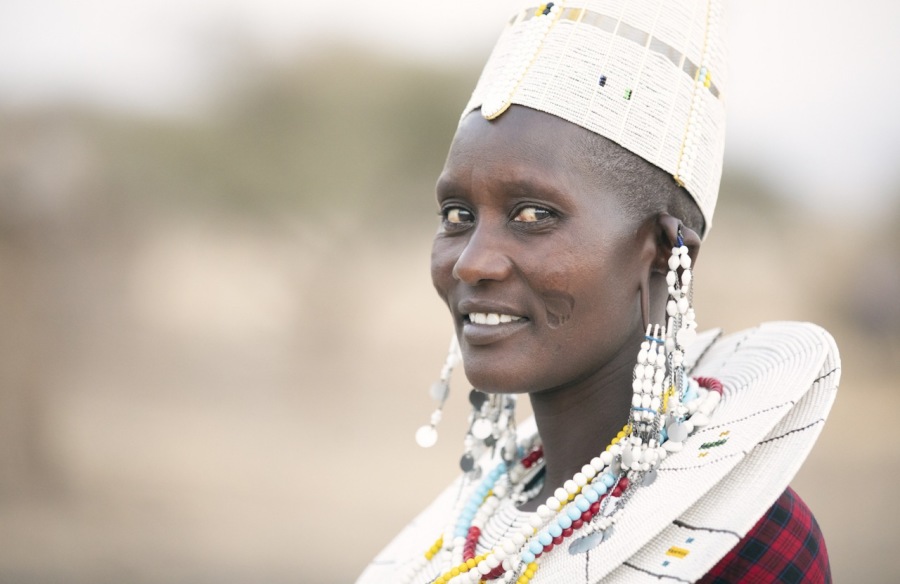When you get curious about other cultures, what are the best ways to explore them? Some of us book a flight, keen for a first-hand experience. Others turn to study, maybe anthropology or indigenous studies at university.
Some, like Anniina Sandberg, an adventurous traveller from Helsinki, completed her African studies at the University of Helsinki and then took her passion a little further. She not only travelled to Tanzania to meet the Maasai people in Africa but ended up living there for nine months.

Motivated to learn more about the Swahili language, the Maasai culture and their Maa language, this ambitious, inspired woman left the comforts of home and put her studies on hold. Nine months later – mission accomplished. She was speaking Swahili fluently and also learnt to speak another Maasai language, the Maa language.

“The experience of living with the Maasai changed my life. It was a real turning point for me,” she explained. “When I returned home, I missed my daily African life. I missed the remote savanna, and I missed the communal feeling and wonderful sense of togetherness you experience joining in the spirit of daily village life activities.” She continued, “I realised my happiness came from these experiences, living among the indigenous peoples. A life that is simple but so rich. I came home and made a plan to return.”
Some of the most memorable times for Anniina were the many Maasai ceremonies she attended. “It was the custom to dress up in Maasai clothes. We would all dance and sing for a whole day. Before every ceremony, my Maasai friend Lea would invite me to her home and give me a new set of Maasai clothes,” she said with her gentle smile, “Lea was a woman who taught me many things about her culture and her values. She was a very strong Maasai woman and leader of her boma (village clan settlement)”.

Life in a Boma
The Maasai people don’t live in villages. Instead, they live in family compounds called “bomas.” A boma is a homestead headed by one male, consisting of houses for each of his wives and their children. Maasai are polygamous, and every Maasai woman builds her hut in her husband’s boma. The final number of these huts depends on how big the family becomes.

Healing and Health
As with many communities, health is very important to the Maasai. When there are severe medical problems that cannot be healed traditionally, they often do not have the means to pay hospital bills, especially if specialist care is needed. Anniina helped to set up a programme to assist with health insurance so, for example, a mother and her child can travel to town for treatment when needed. “This often saves lives,” she said, “The programme, which has been going one year has ensured a better and healthier life for over 100 Maasai tribespeople”.

Giving Back
Bridging the gap between indigenous and non-indigenous people can be a source of joy on both sides. Motivated to stay in touch with the Maasai, Anniina launched another venture when she returned home. She established www.visitnatives.com, a personalised tour programme to bring travellers to Tanzania and experience the culture in a very authentic way. In operation for three years now, Visit Natives customises trips and offers unique experiences for the conscious traveller. Each trip supports a new family with health insurance, having a very positive impact on their lives and their future.
“I want travellers to have meaningful and deep travel experiences that also benefit the locals. I believe this is the future of travelling. The families we have supported now with health insurance would not have had this without our travellers.” Anniina said. “I founded Visit Natives for this reason, and I accompany most trips”.

The Next Exciting Indigenous Adventure
The next adventure tour dates for 2023/24 are on www.visitnatives.com The group will stay in a Maasai boma near Mto Wa Mbu village. One very unique highlight of this trip is a stay with the Hadzabe hunter-gatherers – they are one of the world’s last hunter-gatherers. The cross-cultural exchange is two-way, and hosts really enjoy learning from international guests, as well as the long-term health benefits to the family.

Feedback
Travellers often comment that they get a deep connection with the local people because they are received as guests, not tourists. The indigenous hosts are often prompted to design handicrafts that they give as a welcome present. “We only work with the local people who are interested in sustainable indigenous tourism and who are genuinely enthusiastic about the programme. I think this is the reason why travellers all value their experience and often tell us it gives them a new perspective on their life,” Anniina commented.
Story by Stephanie Brookes
Travel Writer
Photos: Katie Aun Photography http://www.katiekk.com
Published March 14 2020 Indonesia Expat Magazine
Trip details:

